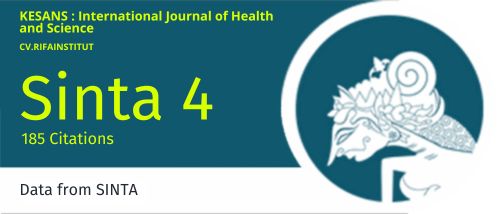Increasing the Usability of Ageratum Conyzoides Linn And Ocium Sanctum L To Become Eco-Friendly Sunblock As Skin Protection From Ultraviolet Rays A And B
DOI:
https://doi.org/10.54543/kesans.v1i5.32Keywords:
eco-friendly, halal, kosmetika, sinar ultraviolet, sunblockAbstract
Indonesia is a tropical country with an ultraviolet index above 11, coupled with global warming causing the level of ultraviolet radiation to increase. This has great potential to cause damage to the skin. Therefore, sunblock protects the skin from the dangers of exposure to UV rays. cosmetic products sunblock is accompanied by the circulation of various sunblock made from synthetic chemicals which of course can endanger health. Based on these problems, the authors created an innovative sunblock from bandotan root extract and basil leaves. This type of research is descriptive analysis with literature review. Based on the studies that have been carried out, it is known that bandotan root extract (Ageratum Conyzoides Linn) has the potential as a sunblock because it contains tannins and flavonoid compounds that can absorb UV A rays at a concentration of 150 ppm. While the basil leaf extract (Ocimum sanctum L) can absorb UV B rays because there are flavonoid and phenol compounds SPF 8.58 is obtained at a concentration of 0.03%. Bandotan root and basil leaf extracts were obtained through maceration and evaporation techniques, while rose water as a solvent was obtained by distillation techniques. The results obtained, namely: (1) increasing the usability of bandotan roots and basil leaves; (2) reducing pathological risk from harmful UV rays; (3) alternative for making sunblock made from natural and halal ingredients. Thus, sunblock is eco-friendly.
Downloads
Published
How to Cite
Issue
Section
Citation Check
License
Copyright (c) 2022 KESANS : International Journal of Health and Science

This work is licensed under a Creative Commons Attribution-ShareAlike 4.0 International License.





















